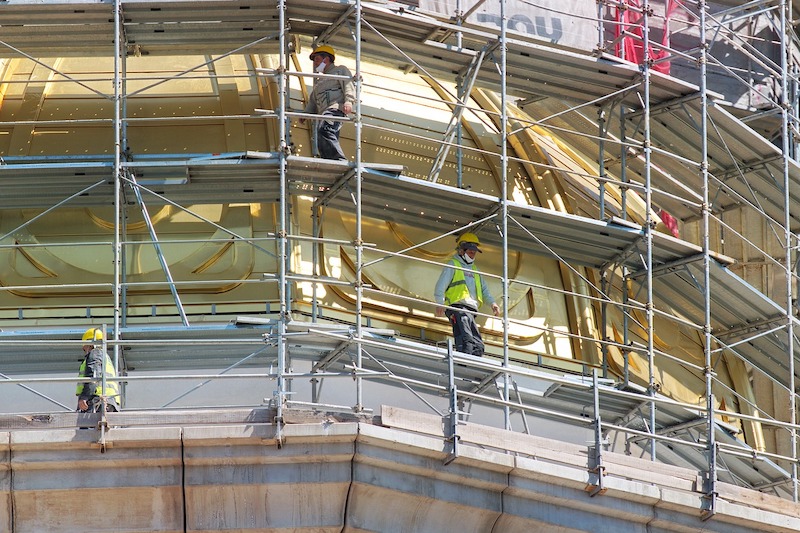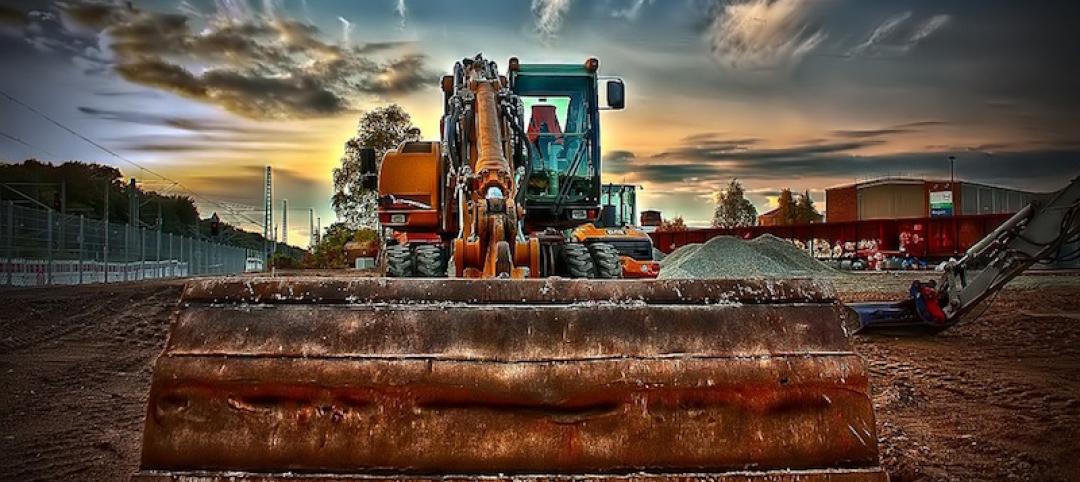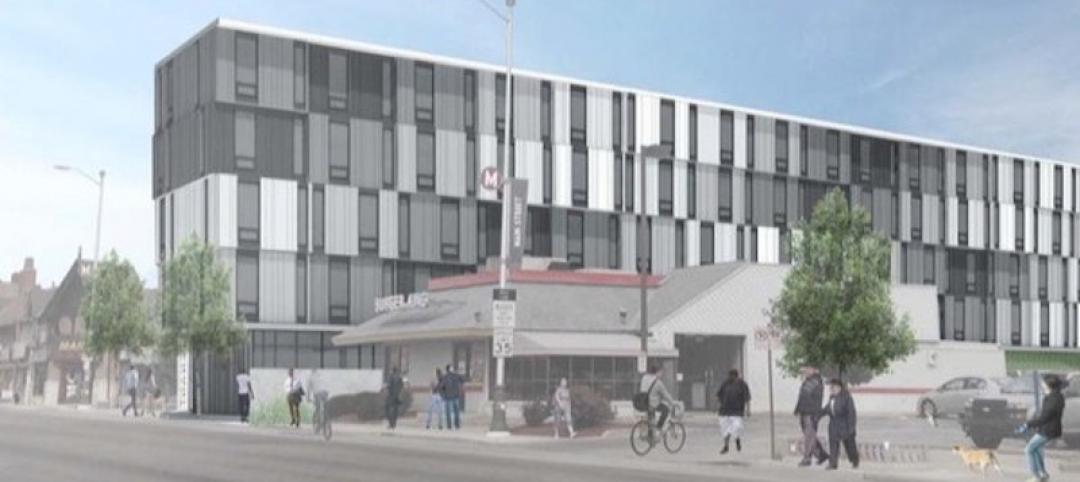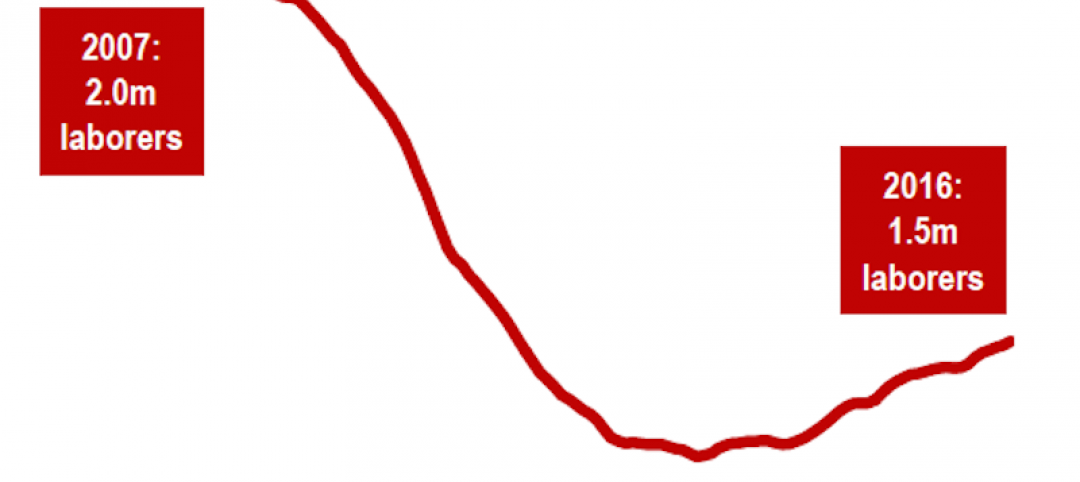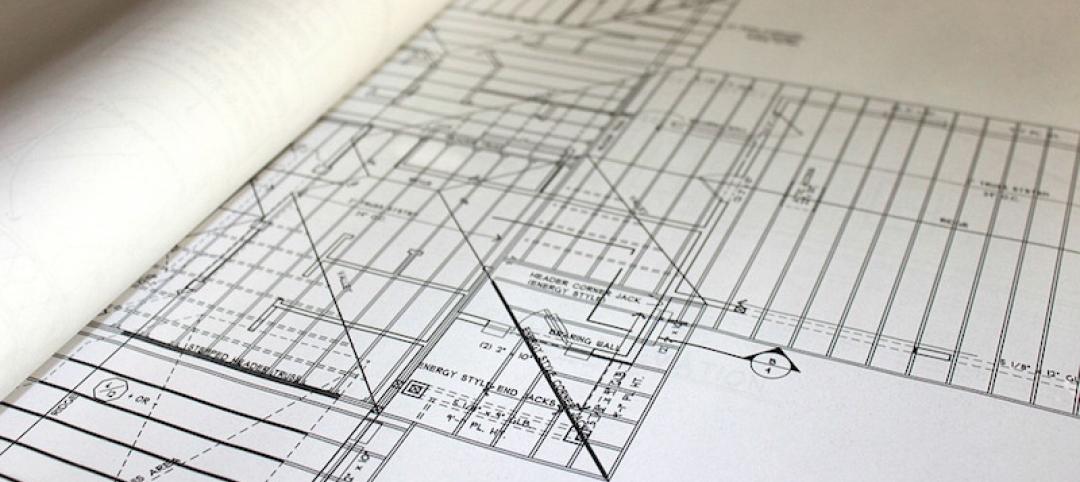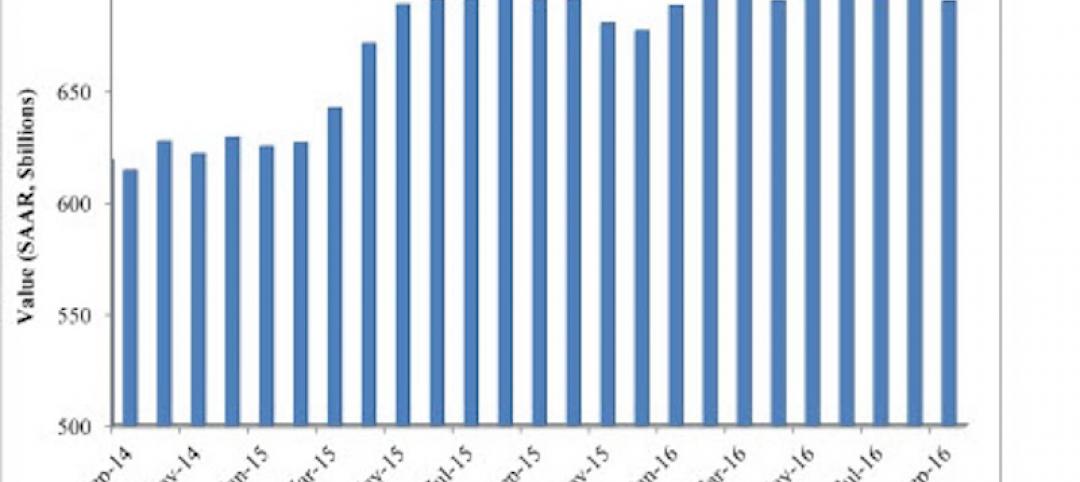The Q2 2020 USG Corporation + U.S. Chamber of Commerce Commercial Construction Index (Index) released today plunged from 74 in Q1 to 56 in Q2. Two of the index’s three main indicators—confidence in new business and revenue expectations—both fell 26 points, to 50 and 44, respectively, revealing the severe impact of the coronavirus pandemic on the construction industry. However, the third indicator, backlog, dropped only a modest three points, remaining consistent with the first half of 2018. Survey results were largely collected in the month of April, at the height of shutdown restrictions.
The overall drop in the Index stemmed in part from the fact that very few contractors (16%) now express high confidence in the market’s ability to provide new business opportunities in the next 12 months (down from 54% in Q1), and there was a 30 percentage point drop in contractors expecting their revenues to increase (17% in Q2 from 47% in Q1). Meanwhile, the percentage expecting to see their revenues decrease in the next 12 months spiked from 2% in Q1 to 21% in Q2.
Yet several survey findings suggest that the commercial construction industry is poised for recovery. Contractors still have significant backlog, with 60% of contractors reporting they have at least six months of backlog (compared to 69% in Q1). More than eight in 10 (83%) say their revenue will increase or remain about the same in the next year. And, three in four contractors say they have moderate or high confidence that the next year will bring sufficient new business opportunities (and in the next two years, that percentage rises to 93%).
This quarter’s Index also reveals that the commercial construction industry is an important employer and is ready to hire more workers. One in three contractors (32%) plan to hire more workers in the next six months, while nearly half (48%) believe their workforce will stay the same. Only 15% expect to employ fewer people.
“Even as most construction has been deemed essential during the last few months, the loss of new projects and revenue has been severe. This industry is key to our economy, representing three million American jobs and $700 billion in spending," says Christopher Griffin, president and CEO of USG Corporation. “We’re watching closely signs of improvement, as commercial construction can serve as a bellwether for other economic development and recovery.”
Covid-19 Impacts
When the survey was taken in April 2020 the vast majority (87%) of contractors reported they were currently experiencing delays due to the coronavirus outbreak, with 87% expecting delays to continue into the summer and 73% expecting delays will remain in the fall.
However, contractors become less concerned about delayed projects as they look to the future. In April, over a third (35%) of contractors reported that at least 75% of their projects were delayed. Asked to look three months ahead, only 16% of contractors expected the same, and looking six months ahead, only 8% expect at least 75% of their projects to be delayed.
“No industry has been immune to the devastating impact of Covid-19,” said Neil Bradley, U.S. Chamber of Commerce executive vice president and chief policy officer. “However, the commercial construction industry appears poised for a quick recovery and a return to growth. This is good news for the economy and the millions of Americans who work in the industry. Congress can help by continuing to support the economy.”
Contractors quickly adapted their operations to comply with new safety guidelines. More than nine in 10 contractors (92%) said they changed work procedures to increase social distancing. And, contractors indicated worker health and safety is top of mind. Given a list to choose from of the most severe Covid-19 consequences for their business, three-quarters (75%) said worker health and safety is a top concern, followed by fewer projects (48%), and increases in workforce shortages (33%).
Asked how the pandemic will change how they do business in the future, contractors said adjustments to safety and work procedures would be the top change. They also expect big changes in more remote work for their staff and paying greater attention to language used in contracts.
On June 24, join USG Corporation and the U.S. Chamber of Commerce for a virtual panel discussion on Covid-19’s impact on the construction industry, where USG Corporation CEO Chris Griffin, U.S. Chamber of Commerce Senior Economist Curtis Dubay, and Association of the Wall and Ceiling Industry CEO Michael Stark will discuss these survey findings and more.
The Index is comprised of three leading indicators to gauge confidence in the commercial construction industry, generating a composite Index on the scale of 0 to 100 that serves as an indicator of health of the contractor segment on a quarterly basis. The survey was in the field April 4 - 27, 2020.
The Q2 2020 results from the three key drivers were:
- Backlog: The backlog indicator dropped three points to 73 (from 76 in Q1).
- New Business Confidence: The overall level of contractor confidence dropped to 50 (down 26 points from Q1).
- Revenue: Contractors’ revenue expectations over the next 12 months dropped to 44 (down 26 points from Q1).
The research was developed with Dodge Data & Analytics (DD&A), the leading provider of insights and data for the construction industry, by surveying commercial and institutional contractors.
Related Stories
Market Data | Nov 30, 2016
Marcum Commercial Construction Index reports industry outlook has shifted; more change expected
Overall nonresidential construction spending in September totaled $690.5 billion, down a slight 0.7 percent from a year earlier.
Industry Research | Nov 30, 2016
Multifamily millennials: Here is what millennial renters want in 2017
It’s all about technology and convenience when it comes to the things millennial renters value most in a multifamily facility.
Market Data | Nov 29, 2016
It’s not just traditional infrastructure that requires investment
A national survey finds strong support for essential community buildings.
Industry Research | Nov 28, 2016
Building America: The Merit Shop Scorecard
ABC releases state rankings on policies affecting construction industry.
Multifamily Housing | Nov 28, 2016
Axiometrics predicts apartment deliveries will peak by mid 2017
New York is projected to lead the nation next year, thanks to construction delays in 2016
Market Data | Nov 22, 2016
Construction activity will slow next year: JLL
Risk, labor, and technology are impacting what gets built.
Market Data | Nov 17, 2016
Architecture Billings Index rebounds after two down months
Decline in new design contracts suggests volatility in design activity to persist.
Market Data | Nov 11, 2016
Brand marketing: Why the B2B world needs to embrace consumers
The relevance of brand recognition has always been debatable in the B2B universe. With notable exceptions like BASF, few manufacturers or industry groups see value in generating top-of-mind awareness for their products and services with consumers.
Industry Research | Nov 8, 2016
Austin, Texas wins ‘Top City’ in the Emerging Trends in Real Estate outlook
Austin was followed on the list by Dallas/Fort Worth, Texas and Portland, Ore.
Market Data | Nov 2, 2016
Nonresidential construction spending down in September, but August data upwardly revised
The government revised the August nonresidential construction spending estimate from $686.6 billion to $696.6 billion.


